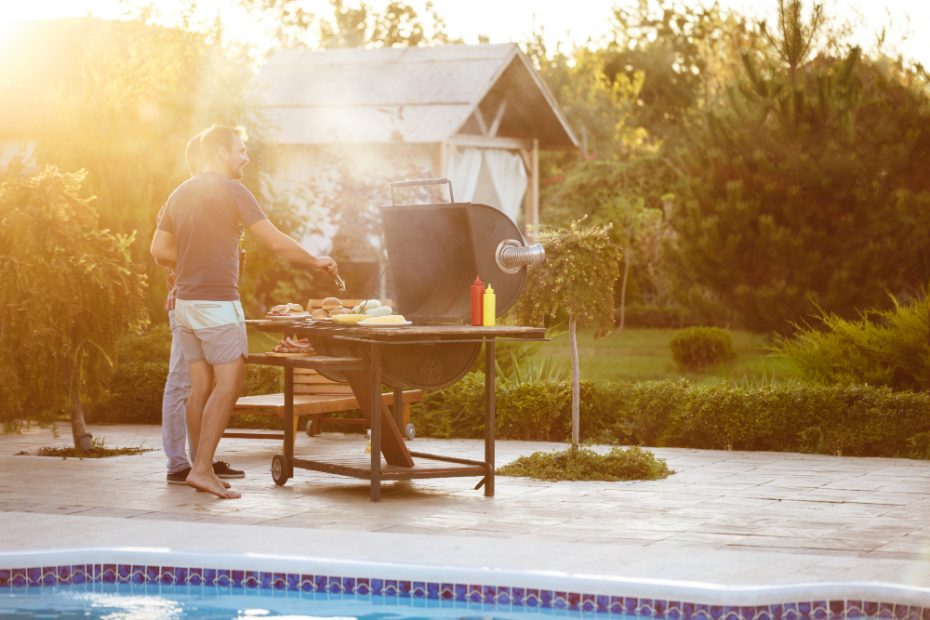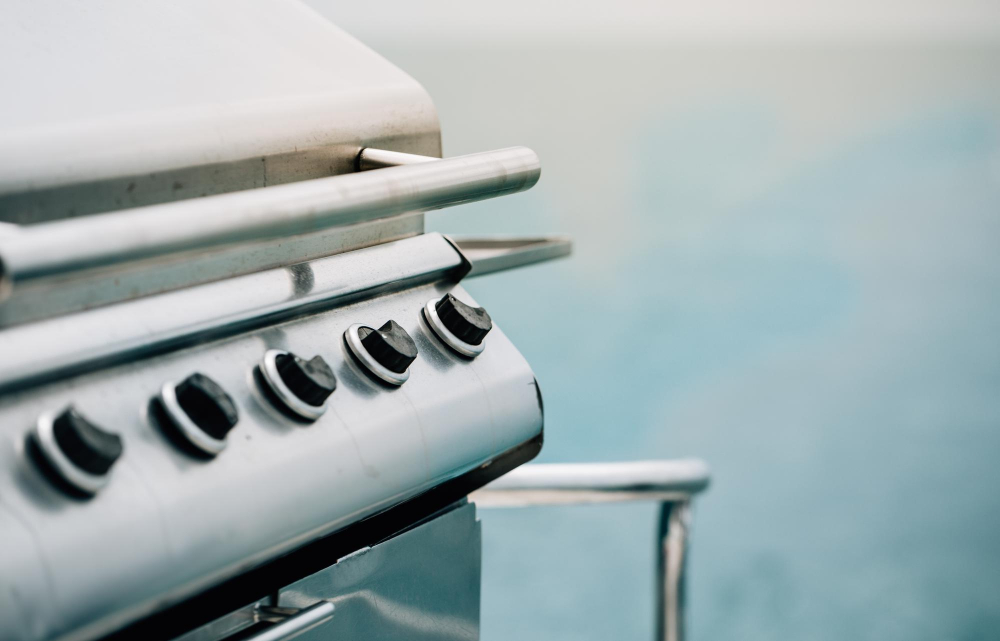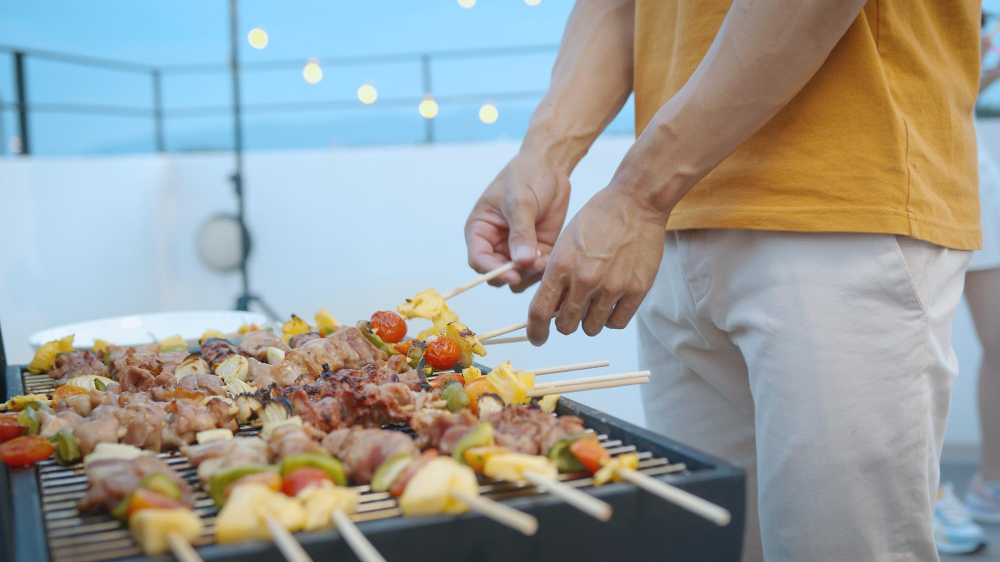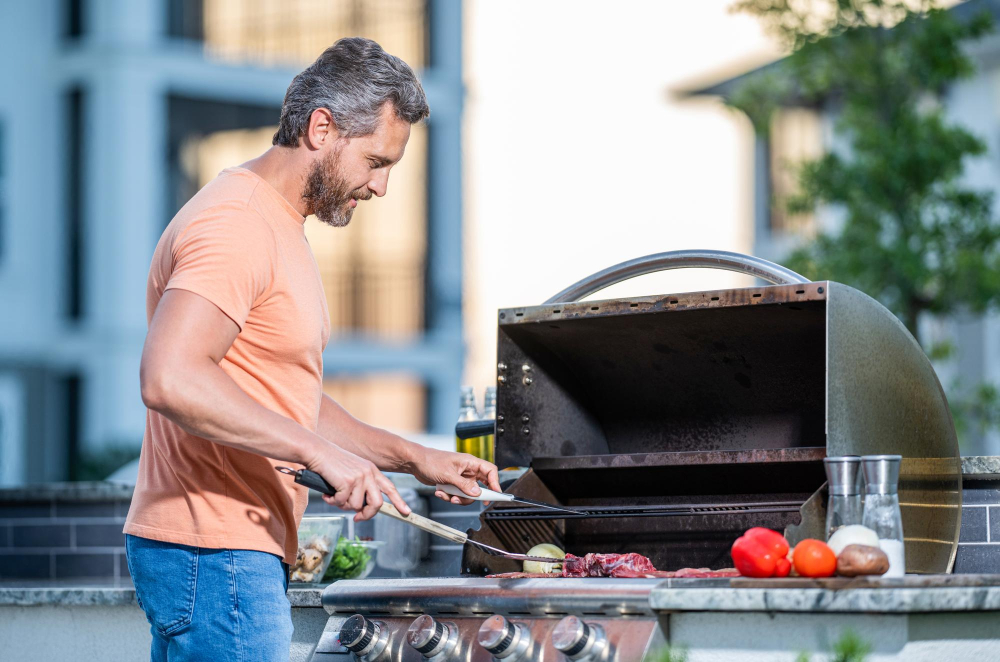How many burners do I need on a gas BBQ?
When it comes to choosing a gas BBQ, one of the key decisions you’ll need to make is how many burners you require. The number of burners can have a significant impact on the cooking experience and versatility of your grill. Understanding your needs and preferences will help you determine the ideal number of burners for your gas BBQ.
Factors to consider
Before deciding on the number of burners, there are several factors you should take into account:
- Cooking capacity: Consider the number of people you typically cook for. If you frequently entertain large groups or have a large family, more burners may be necessary to accommodate larger quantities of food.
- Space: Assess the available space in your outdoor area. If you have limited space, a smaller grill with fewer burners may be more suitable.
- Cooking styles: Think about the types of dishes you like to prepare. If you enjoy searing meats and vegetables simultaneously, multiple burners can offer greater flexibility and control over heat zones.
- Grilling accessories: Consider any additional grilling accessories you plan to use, such as side burners or rotisserie attachments. These can increase the overall cooking surface area and may affect your burner requirements.
Determining the right number of burners
Now that you’ve taken the above factors into consideration, it’s time to determine the appropriate number of burners for your gas BBQ. Here’s a general guideline:
- 1-2 burners: Suitable for individuals or small families who primarily grill for personal use and have limited space. This size is ideal for basic grilling needs and occasional entertainment.
- 3-4 burners: Great for medium-sized families or those who enjoy hosting gatherings and cooking a variety of dishes. This size provides ample cooking space and the ability to create different heat zones for versatile grilling.
- 5+ burners: Recommended for large families, avid grillers, or those who frequently entertain large groups. With more burners, you can easily cook multiple dishes at different temperatures simultaneously.
Remember, it’s always better to have more burners than you think you’ll need, as it allows for greater flexibility in your grilling options. You can always choose to use fewer burners if necessary, but having extra burners provides versatility for various cooking scenarios.
Other considerations
In addition to the number of burners, there are a few other aspects to consider when selecting a gas BBQ:
- BTU rating: The British Thermal Unit (BTU) rating indicates the heat output of the grill. Higher BTU ratings generally mean faster preheating and higher maximum temperatures.
- Grill size: Consider the overall size of the grill, including the cooking surface area and any additional features such as side shelves or storage compartments.
- Build quality: Look for a durable construction with high-quality materials that can withstand the elements and provide long-lasting performance.
- Budget: Determine your budget and compare different models within your price range. While more burners generally come at a higher cost, it’s important to find the right balance between features and price.
By carefully evaluating these factors and considering your specific needs, you’ll be able to choose a gas BBQ with the ideal number of burners to enhance your outdoor cooking experience. Whether you opt for a compact two-burner grill or a larger six-burner model, there are plenty of options available to suit every preference and budget.
Is a 5 Burner Grill Better Than 4?
When it comes to choosing the perfect grill for your outdoor cooking needs, there are many factors to consider. One important factor is the number of burners the grill has. While both a 5 burner grill and a 4 burner grill have their own advantages, it’s essential to understand which option best suits your cooking style and requirements.
Advantages of a 5 Burner Grill
A 5 burner grill provides several benefits that may make it a better choice for many enthusiasts:
- Enhanced Cooking Flexibility: With five burners, you have more precise control over different temperature zones, allowing you to simultaneously cook various types of food at different heat levels or accommodate larger meals effortlessly.
- Ample Cooking Space: The additional burner typically comes with more grilling area, providing more room for preparing meals for larger gatherings or events.
- Versatility: A 5 burner grill often includes additional features, such as side burners, rotisserie attachments, or warming racks, allowing for greater versatility in cooking a wide variety of dishes.
Advantages of a 4 Burner Grill
While a 5 burner grill offers some distinct advantages, a 4 burner grill may still be a suitable option depending on your needs:
- Compact Size: A four burner grill is generally more compact, making it ideal for those with limited outdoor space or for individuals who prefer a smaller cooking area.
- Cost Savings: In general, a 4 burner grill tends to be more affordable compared to its 5 burner counterpart, allowing you to save money without compromising on quality.
- Ease of Use and Maintenance: With fewer burners, a 4 burner grill can be simpler to operate and maintain, making it an excellent option for those who are new to grilling or prefer a more straightforward cooking experience.
“Ultimately, the decision between a 5 burner grill and a 4 burner grill depends on your specific needs, space availability, and budget.”
Whether you choose a 5 burner grill or a 4 burner grill, both options provide excellent cooking capabilities. Consider your cooking preferences, available space, and budget before making your final decision. Whichever grill you choose, with proper care and maintenance, it will undoubtedly enhance your outdoor cooking experiences for years to come.
Should you burn off gas grill after cooking?
After a delicious barbecue meal on your gas grill, you might be wondering whether it is necessary to burn off the remaining gas. While there is no hard and fast rule, many experts recommend taking this extra step to ensure the longevity and performance of your grill.
The Benefits of Burning Off Gas Residue
Burning off gas residue can help remove any leftover food particles and grease that may have accumulated during cooking. This process not only helps maintain cleanliness but also prevents potential flare-ups and reduces the risk of bacteria growth.
In addition, burning off gas residue can help extend the lifespan of your grill. By keeping the burners and other components clean, you can prevent rust, corrosion, and other issues that may result from leftover food and grease buildup.
How to Properly Burn Off Gas Residue
- Clean the grates: Before burning off gas residue, clean the grates using a grill brush to remove any excess food or debris.
- Preheat the grill: Turn on the necessary burners to preheat the grill for approximately 10-15 minutes with the lid closed.
- Burn off residue: Open the lid and turn the burners to high heat for another 10-15 minutes. This high heat will help burn off any remaining food particles and grease.
- Cool down: After burning off the residue, let the grill cool down naturally before cleaning and storing it.
“Burning off gas residue can help maintain the cleanliness, performance, and longevity of your gas grill.”
Remember to always follow the manufacturer’s instructions and guidelines for your specific gas grill model. Burning off the gas residue after each use is a good practice to ensure optimal performance and a healthier cooking environment.
Does a gas BBQ need lava rocks?
When it comes to barbecuing, there are various debates that arise among enthusiasts. One common question is whether a gas BBQ needs lava rocks. Traditionally, lava rocks have been used in older gas BBQ models to distribute heat evenly and provide a smoky flavor. However, modern gas BBQs often come with other technological features that make the use of lava rocks unnecessary.
Advantages of using lava rocks
Using lava rocks in a gas BBQ has its advantages. Firstly, they help to retain heat and distribute it evenly, ensuring that your food is cooked thoroughly. Additionally, lava rocks can add a smoky flavor to your grilled dishes, mimicking the taste of cooking over a charcoal BBQ. This can be particularly appealing to those who prefer the traditional outdoor cooking experience.
Disadvantages of using lava rocks
Despite their benefits, lava rocks do have some drawbacks. They require proper maintenance, as they can become greasy and clogged with food debris over time. Cleaning lava rocks can be a tedious and time-consuming task. Moreover, they can deteriorate over time and may need to be replaced regularly, adding to the overall cost of owning a gas BBQ.
Alternative options
Many modern gas BBQs now come equipped with innovative features that eliminate the need for lava rocks. For example, some models have ceramic briquettes or heat plates that perform a similar function by distributing heat evenly and preventing flare-ups. These alternatives are often easier to clean and maintain.
In summary, while lava rocks were once a popular choice for gas BBQs, they are no longer a necessity. Modern gas BBQs often come with advanced features that eliminate the need for lava rocks, providing a more convenient and efficient grilling experience.
“Using lava rocks can add a smoky flavor to your grilled dishes, mimicking the taste of cooking over a charcoal BBQ.”
Can you restore rusty grill grates?
Grilling season is upon us, and you’re eager to fire up the barbecue and enjoy some delicious meals outdoors. But when you uncover your grill, you notice that the grill grates are covered in rust. Don’t worry! With a little effort and some simple steps, you can restore rusty grill grates and get your barbecue back on track.
Why do grill grates rust?
Grill grates are typically made of cast iron or stainless steel, both of which are prone to rusting over time. Rust can develop due to exposure to moisture, humidity, and even leftover food particles left on the grates. Additionally, neglecting to clean and oil the grates can accelerate the rusting process.
Steps to restore rusty grill grates
- Remove the grates: Start by removing the grates from your grill. This will make it easier to clean and treat them.
- Scrub off the rust: Use a wire brush or steel wool to scrub off the rust from the grill grates. Make sure to remove as much rust as possible.
- Clean with soapy water: Prepare a mixture of warm water and dish soap. Use a sponge or cloth to thoroughly clean the grates, removing any remaining rust particles, grease, or debris.
- Rinse and dry: Rinse the grates with clean water and pat them dry with a towel to prevent further rusting.
- Apply oil: Use a high-heat cooking oil like vegetable or canola oil to coat the grill grates evenly. This will help prevent future rust and also act as a non-stick barrier.
- Season the grates: Heat up your grill and let the oil on the grates season them. This process will help create a natural non-stick surface, enhancing the flavor and preventing food from sticking.
Expert tip:
“To maintain your grill grates and keep them rust-free, make sure to clean them after each use and apply a light coat of oil before storing. Regular maintenance will extend the life of your grill grates.”
Remember, prevention is key when it comes to rust. By cleaning and oiling your grill grates regularly, you can minimize the risk of rust formation and ensure they stay in excellent condition for many grilling seasons to come.



